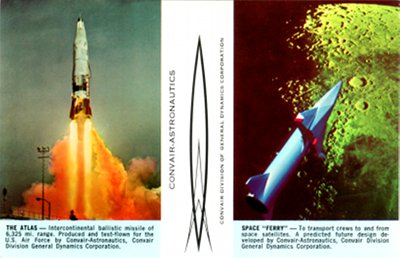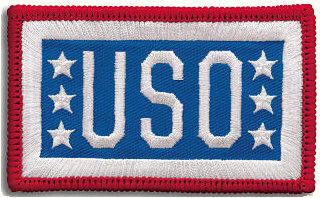 Warfare at Troynovant:
Warfare at Troynovant:
battling among the history & concepts of
war, general weaponry, & philosophy of war;
listed by Title
Many fine novels & poems, films, or stories which include battles or a wartime setting and the like are not listed here unless the work or the review struggles with general ideas about warfare as a literary genre, the warrior's code in men and women, the nature of war or intercultural conflict, and so on. The American Civil War has its own index, as does Weaponry.
Next month, Anson MacDonald [a pseudonym for Robert A. Heinlein] presents a story about an irresistible weapon — "Solution Unsatisfactory," and the title is the Editor's. MacDonald, rather dissatisfied himself, called it "Foreign Policy." The point is that the author's solution to the problem raised in the story — that of a nation, our nation, in possession of an irresistible, but easily imitated weapon — is not tenable. Furthermore, it isn't a pleasant solution anyway. But the trouble is, there doesn't seem to be any solution save the one MacDonald advances — and that one is one no American could accept with equanimity. It's dictatorship, in fact, in the harshest, most stringent form possible, with a super-police force empowered to deal life and death to whole cities at their discretion.
The story's a challenge as it stands. There is no irresistible weapon now, of course, and all the history of war has shown that cries of "It's irresistible!" have been false. But, as MacDonald points out in his story, the little boy cried "Wolf! Wolf!" until when the wolf came nobody believed it. But the wolf did come.
And MacDonald suggests that the weapon will come — and come in about three years. Personally, I'm most desperately afraid he's absolutely correct.
Read the yarn, and let's have your suggestions as to how to get a satisfactory solution ...
The Editor
John W. Campbell, Jr.
Astounding Science Fiction, April 1941
| Alexander the Great Selected Texts from Arrian, Curtius and Plutarch |
Tania Gergel | RW Franson |
| Anzio [film] | Edward Dmytryk / Robert Mitchum | RW Franson |
| Berlin Diary The Journal of a Foreign Correspondent 1934-1941 |
William L. Shirer | RW Franson |
| Between Planets | Robert A. Heinlein | RW Franson |
| Bird The Christmastide Battle [Vietnam, December 1966] |
S.L.A. Marshall | RW Franson |
| Bluebell Saves the Day Me and My Truck and the Mule versus the Seaborne Invasion |
RW Franson | |
| By Ships Alone Churchill and the Dardanelles |
Jeffrey D. Wallin | RW Franson |
| Cunard Steamship Company Aquitania, Mauretania, Lusitania advertisement, March 1915 |
||
| Five Days in London, May 1940 | John Lukacs | RW Franson |
| Fortress Hoover and the Vigilantes Who Will Wake the Watched? |
RW Franson | |
| From the Dardanelles to Oran Studies of the Royal Navy in War and Peace 1915-1940 |
Arthur J. Marder | RW Franson |
| Frontiers and Wars | Winston S. Churchill | RW Franson |
| General, The | Buster Keaton | RW Franson |
| German High Command at War, The Hindenburg and Ludendorff Conduct World War I |
Robert B. Asprey | RW Franson |
| Great Contemporaries | Winston S. Churchill | RW Franson |
| Great Siege, The Malta 1565 |
Ernle Bradford | RW Franson |
| Greek and Macedonian Art of War, The | F.E. Adcock | RW Franson |
| Gunga Din | Rudyard Kipling / George Stevens | RW Franson |
| Gunpowder - Alchemy, Bombards and Pyrotechnics The History of the Explosive that Changed the World |
Jack Kelly | S Farrell |
| Hitler in Warsaw; Birthday in Krakau Postcard, 20 April 1941 |
RW Franson | |
| Land Ironclads, The | H. G. Wells | RW Franson |
| Lord Kalvan of Otherwhen | H. Beam Piper | RW Franson |
| Malakand Field Force, The Story of the An Episode of Frontier War |
Winston S. Churchill | RW Franson |
| Micah Clarke | A. Conan Doyle | RW Franson |
| Off Armageddon Reef | David Weber | WH Stoddard |
| Pentagon's New Map, The War and Peace in the Twenty-first Century |
Thomas P. M. Barnett | RW Franson |
| Quartered Safe Out Here A Recollection of the War in Burma [February-August 1945] |
George MacDonald Fraser | RW Franson |
| Reporting Vietnam American Journalism 1959-1975 |
[anonymous] | RW Franson |
| Return of the King, The [film] | J.R.R. Tolkien / Peter Jackson | WH Stoddard |
| Shattered Sword The Untold Story of the Battle of Midway |
Jonathan B. Parshall & Anthony P. Tully |
RW Franson |
| Siege of Vienna, The [1683] |
John Stoye | RW Franson |
| 1632 | Eric Flint | RW Franson |
| Switchboard Girls with Gas Masks Calm and Secret Heroism |
RW Franson | |
| Swords and Swordsmen | Mike Loades | S Farrell |
| Talents, Incorporated | Murray Leinster | RW Franson |
| Temeraire series | Naomi Novik | WH Stoddard |
| 1066: Changing the English Channel | S Farrell | |
| Tolkien and the Great War The Threshold of Middle Earth |
John Garth | WH Stoddard |
| Truth about Cushgar, The | James H. Schmitz | RW Franson |
| Victory at Sea | Henry Salomon; Richard Rodgers | RW Franson |
| War Before Civilization The Myth of the Peaceful Savage |
Lawrence H. Keeley | RW Franson |
| Witches of Karres, The | James H. Schmitz | RW Franson |
| Writings | George Washington | RW Franson |
[Warkworth Castle, Northumberland.]
Lady Percy (to Henry Percy, Hotspur):
In thy faint slumbers I by thee have watched,
And heard thee murmur tales of iron wars,
Speak terms of manege to thy bounding steed,
Cry 'Courage! To the field!' And thou hast talked
Of sallies and retires, of trenches, tents,
Of palisadoes, frontiers, parapets,
Of basilisks, of cannon, culverin,
Of prisoners ransomed, and of soldiers slain,
And all the currents of a heady fight.William Shakespeare
1 Henry IV, 2.4.41-49
The decision that the main Nazi forces should be deployed agains the Soviet Union, that the Soviet-German Front should become the main battlefront in the summer of 1943, and that the main question pertaining to the outcome of World War II would be settled there did not raise any doubt in higher political and military circles of Nazi Germany. And they were most resolute in implementing this policy.To launch the offensive, the German warlords chose the Kursk direction. The [Soviet armies'] Kursk salient — extending far to the west in the Kursk area — created, according to the concept of the German command, the proper prerequisites for surrounding and smashing the defending armies of the [Soviet] Central and Voronezh Fronts and their strategic reserves. The operation received the code name Citadel. The main stake was placed on the effectiveness of a sudden massive strike of tank forces on narrow sectors of the breach. ...
On April 8, Marshal G. K. Zhukov, who was in the Kursk salient area, sent a report on the character of possibile military actions in the summer of 1943, in which he particularly stressed the following: "I consider it inexpedient for our troops to launch a preventive offensive in the near future." He also considered: "It would be better to wear down the enemy on our defensive positions, knock out his tanks, and then bring in fresh reserves and finish off his main groupings in a general offensive." ...
The Soviet Command, knowing the date set for the enemy's offensive, at the dawn of 5 July 1943 launched powerful artillery and air counter-preparations agains the enemy poised for a thrust. A rain of artillery and mortar shells and air bombs fell on his positions. The main blows were directed at artillery battery positions, observation posts, HQs, troop concentrations and airfields. The enemy sustained considerable losses while in assault position, and was compelled to assume the offensive somewhat behind schedule. The Nazis had failed to gain the element of surprise. ...
V. Larionov, N. Yeronin, B. Solovyov, V. Timokhovich
"4. The Battle of Kursk: Force Versus Force"
World War II: Decisive Battles of the Soviet Army
(Vazhneĭshie bitvy Sovetskoĭ Armii vo vtoroĭ mirovoĭ voĭne)
Progress Publishers: Moscow (1984)
translated by William Biley
American Civil War at Troynovant
1860-1865; freedom & slavery,
campaigns and battles
Weapontake at Troynovant
weapons, martial arts;
gun rights, freedom of self-defense
United Service Organizations (USO)
for American armed forces since 1941
Thanks as always
to all who've worn the American uniform;
and from we who have,
to all the American people who have supported us.— Robert W. Franson
Traveler, take this word to the men of Lakedaimon:
We who lie buried here did what they told us to do.epitaph inscribed for the Spartans
who died fighting at Thermopylaeattributed to Simonides of Ceos
Greek Lyrics (second edition: 1960)
translated by Richmond Lattimore
| Troynovant, or Renewing Troy: | New | Contents | |
| recurrent inspiration | Recent Updates | |
|
www.Troynovant.com |
||
|
Reviews Essays by Title:
A-B
C-F
G-L
M-R
S-Z
If you do not see the Troynovant banner at the top, |
||
| Personae | Strata | Topography |
|
|
